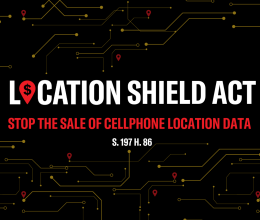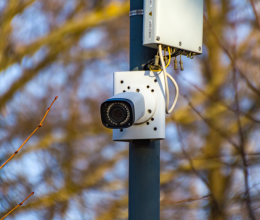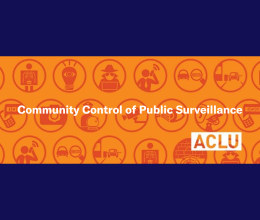
The ACLU of Massachusetts today called on Somerville City Council to vote to withdraw authorization for unreliable gunshot detection technology in the city. In a letter sent to the City Council today, the ACLU warns that such technology is ineffective and threatens basic civil rights.
“Public safety shouldn't rely on unproven, faulty technologies that threaten basic civil rights and civil liberties,” said Kade Crockford, Technology for Liberty program director at the ACLU of Massachusetts. “Instead, it should be grounded in respect for civil rights, transparency, and a genuine commitment to the well-being of all communities. We commend City Councilor Burnley for introducing this order, and we urge the City Council to vote to end Somerville’s use of ShotSpotter.”
Gunshot detection technology, like ShotSpotter (now SoundThinking), uses microphones, computer software, and human analysts to record and identify potential gunshots. But according to a 2021 study, 89 percent of ShotSpotter alerts in Chicago did not lead to police finding evidence of gun-related crime on arrival, and only about 14 percent led to a police report. Often, ShotSpotter sensors were triggered by a car back-firing, fireworks, or other loud sounds. Other research shows ShotSpotter does not improve public safety outcomes for residents.
“Based on the testimony of experts and statements the Council has received from residents, I have deep concerns about the reliability of ShotSpotter and its potential to create unsafe situations in our community,” said Somerville City Councilor At-Large Willie Burnley Jr. “Rather than taking a reactionary approach to public safety, I’d rather our City use the federal funds we receive to proactively invest in programs that allow us to intervene in crises before they escalate to the point of violence.”
Nationwide, several cities have cancelled their contracts with ShotSpotter, including Charlotte, San Antonio, San Diego, and more. Most recently, Chicago Mayor Brandon Johnson announced in February that the City would not renew its ShotSpotter contract and previously lamented the “pivotal role” ShotSpotter played in the police killing of 13-year-old Adam Toledo. Here in Massachusetts, Fall River officials decided to cut ties with the company because it was an expensive, unreliable system that didn't "justify the cost."
A recent WIRED analysis shows that SpotSpotter is disproportionately deployed in communities of color: Across the country, within neighborhoods where ShotSpotter is deployed, nearly 70 percent of people identify as either Black or Hispanic.
“In Somerville, a city whose elected officials are at the forefront of protecting civil rights and civil liberties, the City Council should do away with this unreliable, ineffective, and potentially dangerous technology,” the ACLU writes in its new letter.
In 2016, the ACLU launched a nationwide effort to pass Community Control Over Police Surveillance (CCOPS) laws that ensure residents, through their city council representatives, are empowered to decide if and how surveillance technologies are used. Somerville is among five Massachusetts communities with a CCOPS law; as a result, residents have a meaningful say over the use of intrusive surveillance technologies in their communities.






